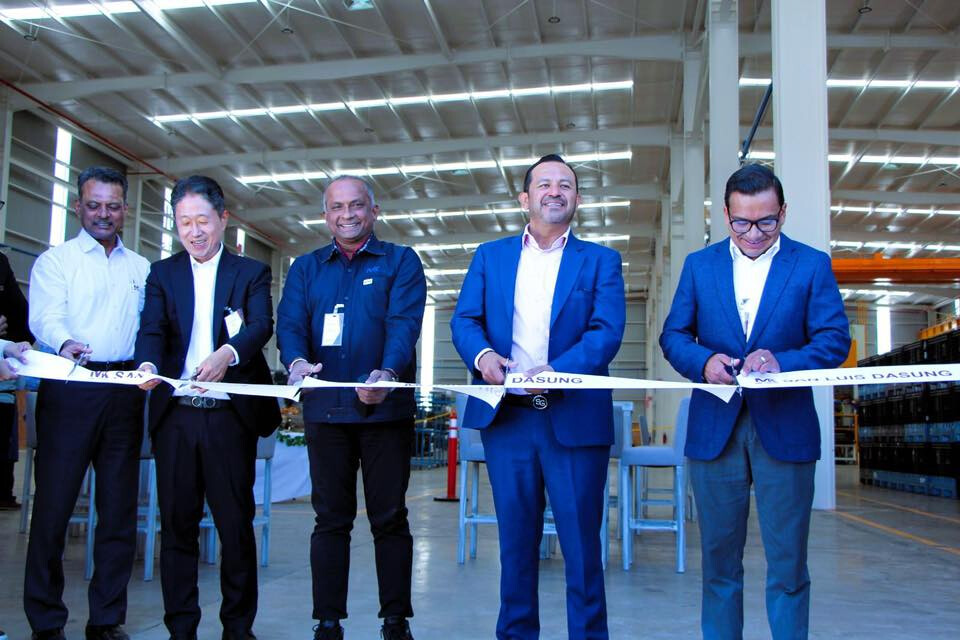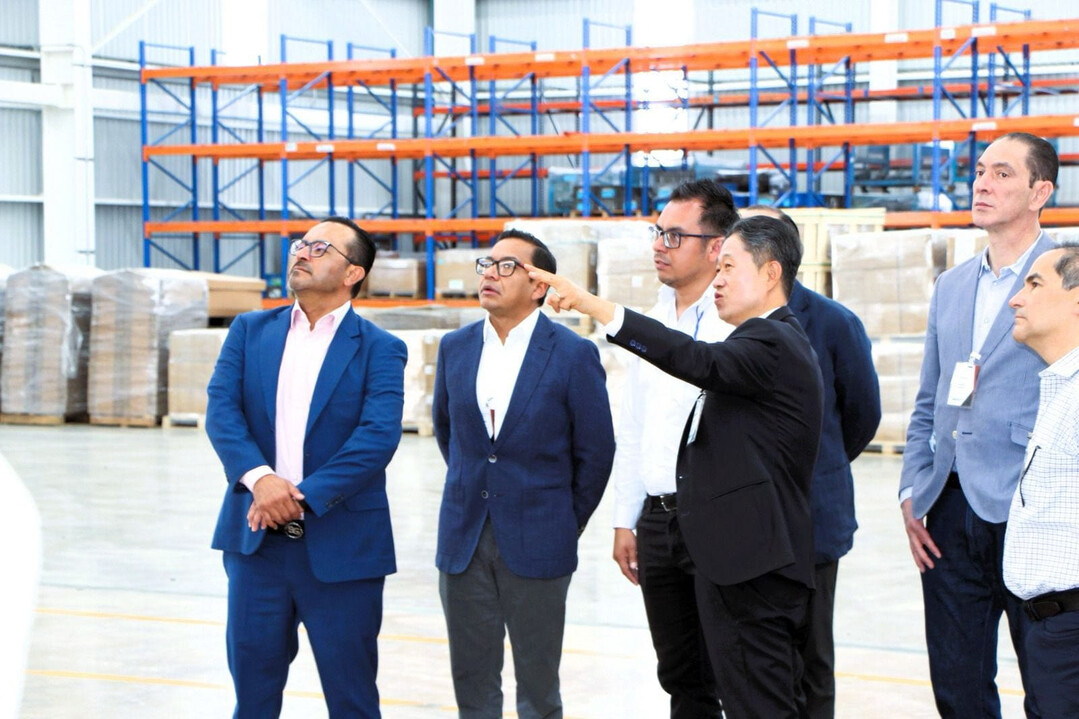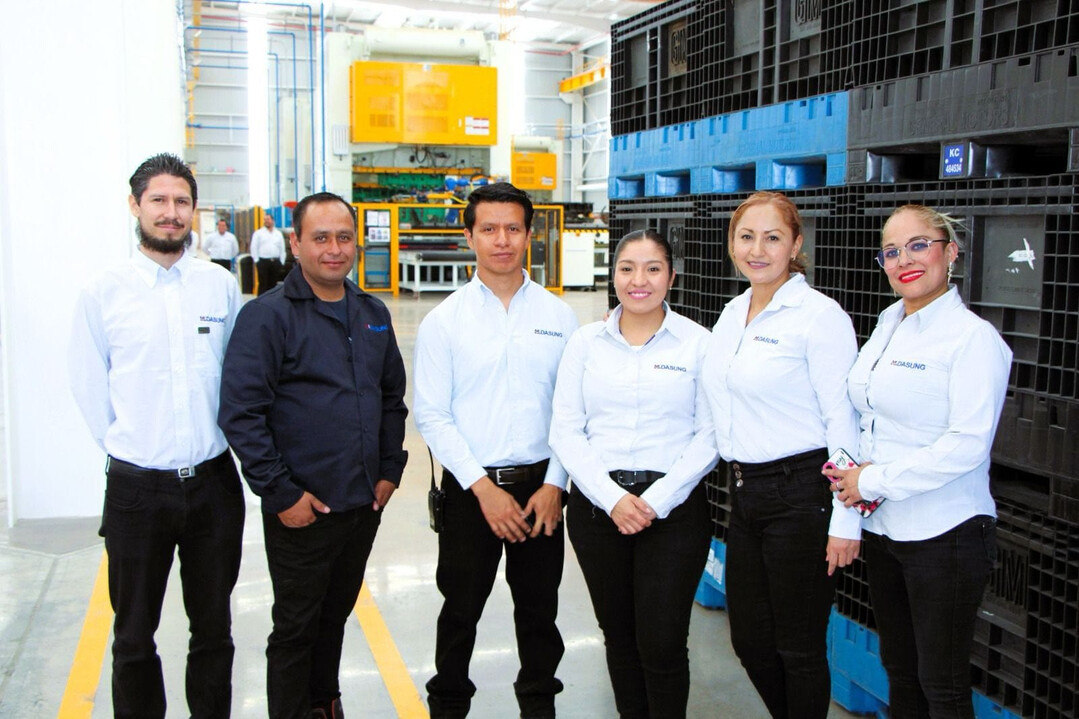
SAN LUIS POTOSI, MEXICO – South Korean automotive component manufacturer Dasung is doubling down on its investment in Mexico, inaugurating its second production facility in San Luis Potosi. This strategic expansion aims to bolster its collaboration with major global clients, including General Motors (GM), and capitalize on recent tariff exemptions granted by the U.S. government on Mexican-made auto parts.
According to the San Luis Potosi Ministry of Economic Development (SEDECO), Dasung has completed its second plant within the Parque Logistik II industrial complex. This new facility represents a $9 million investment and is expected to generate 250 new jobs in the region, further solidifying Dasung’s presence in the North American market.
Dasung first established its Mexican operations in 2015 and currently employs approximately 500 people at its existing plant. The Mexico facility plays a crucial role in supplying GM with 103 different components for popular models such as the Chevrolet Silverado and Blazer. The latest investment underscores Dasung’s commitment to strengthening its local production capabilities to efficiently meet the demands of its North American clientele, particularly GM, and foster closer collaboration. The company plans to integrate advanced automation technologies in the new plant to enhance production efficiency and streamline operations.
While the current focus of Dasung’s Mexico plant is on producing parts for internal combustion engine vehicles, this new investment hints at a potential diversification into electric vehicle (EV) components. Dasung has already demonstrated its capabilities in the EV sector by securing contracts to supply parts for Rivian and Canoo in 2019 and 2021, respectively. Furthermore, the establishment of a sales subsidiary in Michigan in 2020 highlights Dasung’s proactive approach to building a robust support network for its North American customers.
The timing of Dasung’s expansion is particularly opportune, coinciding with recent pronouncements from U.S. President Donald Trump regarding tariff exemptions on auto parts from Mexico. On April 14th, President Trump indicated a willingness to temporarily waive tariffs on certain auto parts sourced from Canada and Mexico as automakers transition their supply chains to increase domestic U.S. production. This policy shift provides a favorable environment for companies like Dasung that operate manufacturing facilities in Mexico.
The U.S. had recently implemented a 25% tariff on imported automobiles, effective April 3rd. However, concerns arose that U.S. automakers like GM, with significant manufacturing footprints in Mexico and Canada, would bear the brunt of these tariffs. Consequently, an exemption was granted for auto parts originating from Mexico and Canada that adhere to the United States-Mexico-Canada Agreement (USMCA), mitigating the immediate impact on companies like Dasung.
Established in 1993, Dasung specializes in the production of automotive components. Headquartered in Incheon, South Korea, with a domestic manufacturing base, Dasung has built a strong reputation for quality. This commitment to excellence has been recognized by GM, which awarded Dasung the “Supplier of the Year” title in both 2014 and 2015, followed by the “Excellent Quality Award” in 2020, underscoring their strong and reliable partnership.
Jesús Salvador González Martínez, the head of SEDECO, expressed his enthusiasm about Dasung’s continued investment, stating, "International companies are continuously placing their trust in San Luis Potosi, and through public-private collaboration, we are actively attracting investments. Despite the U.S. tariff measures, Dasung's projects in San Luis are proceeding smoothly, which is a testament to the state's growing importance as an industrial hub."
This strategic move by Dasung not only strengthens its relationship with key clients like GM but also positions the company for continued growth within the dynamic North American automotive market, potentially paving the way for its entry into the burgeoning electric vehicle component sector. The favorable tariff environment provides an additional tailwind, enabling Dasung to further solidify its role as a crucial supplier in the global automotive supply chain.


[Copyright (c) Global Economic Times. All Rights Reserved.]




























